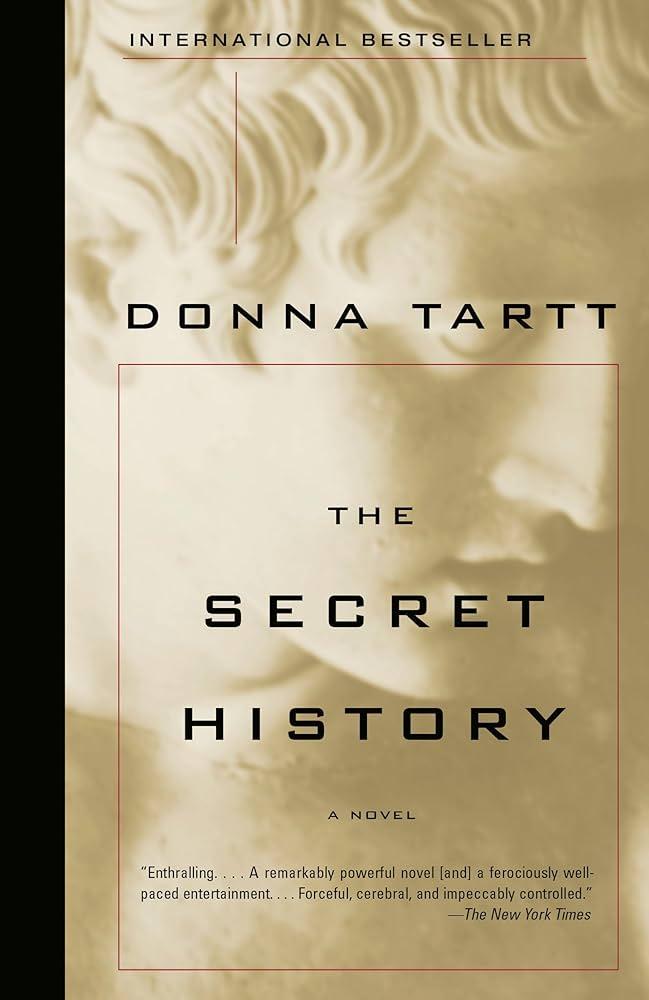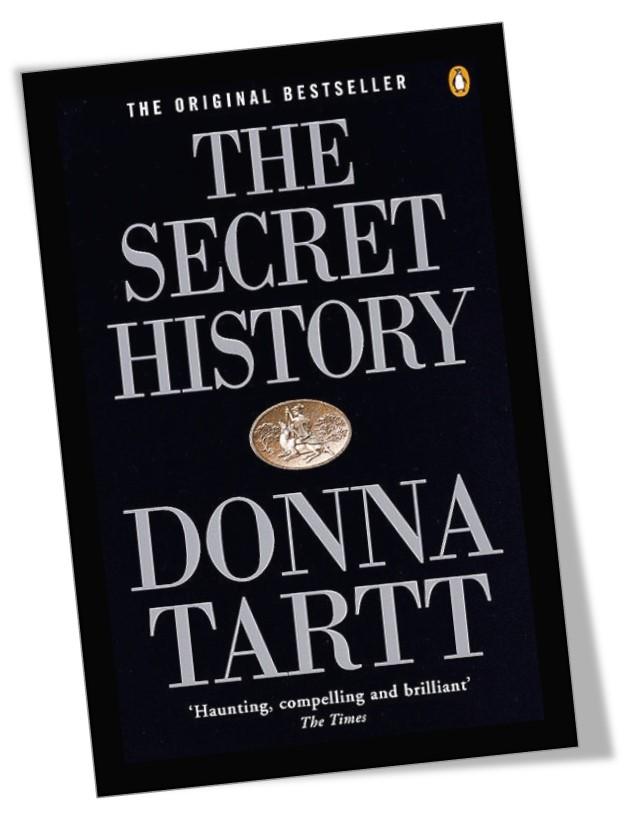In the realm of contemporary literature, few novels have sparked as much debate and analysis as Donna Tartt‘s “The Secret History.” Since its publication in 1992, readers and critics alike have grappled with the book’s complex narrative, rich character development, and underlying themes. At its core, the novel presents a gripping tale of murder and intrigue set against the backdrop of an elite liberal arts college. Yet, beneath its surface, “The Secret History” prompts a deeper exploration into the ethical dimensions of its characters’ actions and the societal structures that influence them. This article seeks to dissect the intricate layers of Tartt’s work, examining whether it serves as a moral commentary on the consequences of unchecked ambition and deceit, or if it stands as a critique of privilege and the insular world of academia. By analyzing the motivations, backgrounds, and decisions of the characters, we aim to uncover whether “The Secret History” is fundamentally a story about morality or a tale woven with the threads of privilege.
Exploring Moral Ambiguity in The Secret History
Donna Tartt’s The Secret History presents a fascinating exploration of moral ambiguity through its complex characters and their actions. At its core, the novel challenges readers to question the ethical boundaries of its protagonists, who are enmeshed in a world of intellectual elitism and hidden transgressions. Richard Papen, the narrator, becomes entangled in a group of Classics students led by the enigmatic Julian Morrow, whose teachings encourage them to transcend conventional morality. This exploration of ancient ideals blurs the line between right and wrong, culminating in the murder of one of their own. The characters’ actions are neither wholly good nor evil, leaving readers to ponder the true nature of morality.
- Conflict between intellectualism and ethics: The students’ fascination with Greek philosophy leads to moral dilemmas.
- Privilege as a shield: The characters’ socioeconomic status provides a cushion from the consequences of their actions.
- The role of mentorship: Julian’s influence raises questions about the responsibility of educators in shaping moral perspectives.
This intricate interplay of privilege and morality forces us to consider whether the characters are victims of their own making or products of an environment that prioritizes intellectual curiosity over ethical clarity. Tartt masterfully crafts a narrative where the allure of a privileged life is inextricably linked to the moral compromises her characters are willing to make, prompting an examination of how far one might go when boundaries are blurred.

The Role of Privilege in Character Development
- Economic Privilege: In “The Secret History,” the characters’ affluence shields them from the consequences that typically accompany their actions. This economic privilege allows them to indulge in a lifestyle marked by exclusivity and decadence, creating a bubble that distorts their sense of morality.
- Social Connections: The tight-knit group, bonded by a shared academic pursuit, leverages their social standing to maneuver through the complexities of their transgressions. These connections offer them a veneer of invincibility, making it difficult for outsiders to penetrate their world.
- Academic Insularity: The elite college setting serves as a microcosm of privilege, where intellectual superiority is often equated with moral superiority. This insularity fosters an environment where ethical boundaries become blurred, allowing the characters to rationalize their actions.
The characters’ privilege, both tangible and intangible, is intricately woven into their development. It acts as a catalyst for their actions, often excusing or justifying behaviors that would otherwise be deemed reprehensible. As such, privilege not only shapes their personalities but also profoundly influences their moral compass, raising questions about the true nature of morality when viewed through the lens of privilege.
Analyzing the Influence of Social Class on Narrative Dynamics
In “The Secret History,” the intricate interplay between social class and narrative dynamics reveals itself through the behaviors and decisions of its characters. The novel, set within the cloistered environment of an elite liberal arts college, showcases how privilege and class can shape moral perceptions and actions. Characters from affluent backgrounds often display a sense of entitlement, viewing themselves as above conventional ethical constraints. This is starkly contrasted with characters from more modest origins, who are frequently depicted as grappling with moral dilemmas more intensely. The disparity in social class thus becomes a lens through which the narrative examines the fluidity of morality, challenging the reader to consider whether ethical transgressions are a result of inherent character flaws or a byproduct of privilege.
The narrative further complicates this examination by blurring the lines between moral culpability and social status. Key elements to consider include:
– The impact of wealth on characters’ decision-making processes.
– How academic elitism influences perceptions of right and wrong.
– The role of social isolation in exacerbating moral ambiguity.
Through these elements, the novel invites readers to question the extent to which social class influences one’s moral compass. Is the story a critique of how privilege can obscure ethical boundaries, or does it serve as a broader commentary on the malleability of morality itself? The ambiguity surrounding these questions adds depth to the narrative, encouraging a deeper exploration of how privilege can shape, and sometimes distort, one’s ethical worldview.

Recommendations for Interpreting Themes of Ethics and Privilege
- Contextual Analysis: Begin by examining the socio-economic backgrounds of the characters. Consider how their privileged status influences their moral decisions and interactions. Analyze the impact of privilege on their sense of morality and whether their actions would be perceived differently without their elite backgrounds.
- Character Development: Focus on the evolution of characters throughout the narrative. Identify instances where ethical dilemmas arise and assess how these moments reveal the underlying themes of privilege. Pay attention to whether characters acknowledge their privilege or remain oblivious, as this can provide insight into the story’s commentary on morality.
- Narrative Structure: Consider how the story’s structure and style emphasize themes of ethics and privilege. Analyze the use of perspective, tone, and pacing to understand how these elements highlight the intersection of morality and privilege. The way the story is told can significantly affect the interpretation of these themes.
- Symbolism and Motifs: Identify symbols and recurring motifs that relate to privilege and ethics. These elements can offer deeper insights into the narrative’s stance on these themes. Evaluate how symbols are used to challenge or reinforce the characters’ moral compasses.
By focusing on these aspects, readers can gain a comprehensive understanding of how ethics and privilege are interwoven in the narrative, offering a nuanced perspective on whether “The Secret History” is more a critique of moral failings or an exploration of the entitlements afforded by privilege.
